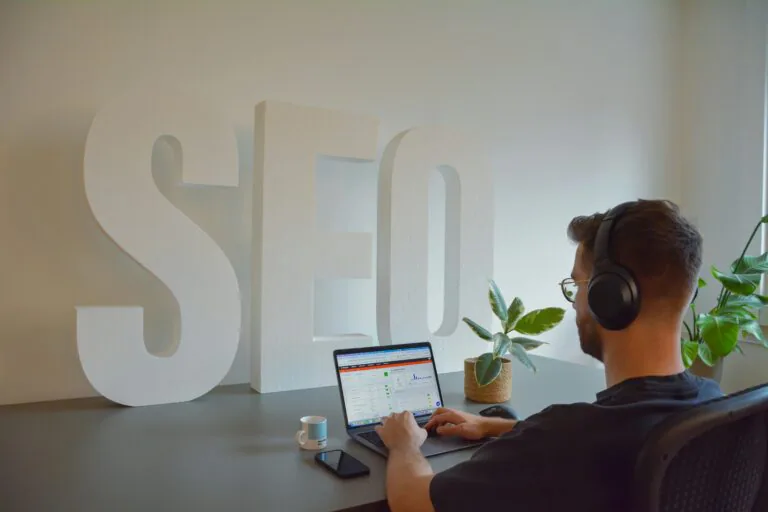If you’re a coach or consultant, you’ve probably been told that business is built on relationships. And it’s true. Networking, referrals, and word of mouth have long been the lifeblood of client growth.
But here’s what’s changed: the way people look for help has moved online.
Even if someone hears about you from a trusted source, their next stop is often Google. They’re searching for answers, reading reviews, and comparing options. Often, that all happens before they ever fill out a contact form. In fact, organic search drives over 50% of all website traffic, making it one of the most powerful and cost-effective ways to get discovered.
So while personal connections still matter, showing up in search results is now part of how you build trust, especially with people who haven’t met you yet.
That’s where SEO comes in.
Organic Traffic Is Your Best Friend (and It’s Already Working Hard)
Think of organic traffic like a trusted referral; it rolls in on its own, day in and day out. If you rank at the top of Google for something people search for, you can win over one in three searchers. In fact, the top spot on Google gets about 39.8% of clicks, and just moving up one position can boost your click-through rate by over 30%.
The Three Pillars of SEO: On‑Site, Off‑Site, and Technical SEO
Let’s say your website is like a workshop:
- On‑Site SEO is how you organize your tools and explain your services. This may include comprehensive service pages, FAQs, and blog posts that answer real questions your clients have.
- Off‑Site SEO is like word-of-mouth with other credible sites linking to yours (think guest posts, mentions from industry groups). These links help to build trust with search engines.
- Technical SEO is the behind-the-scenes mechanics: fast loading, mobile-friendly, clean URLs, sitemaps, so search engines can actually crawl and index your site effortlessly.
Even small tweaks here compound into big wins over time.
Speak Your Audience’s Language (and Answer Their Questions)
Just like a friendly neighbor asking for a recommendation, potential clients often search phrases like “experienced career coach in NYC” or “strategic planning consultant for startups.” They’re not asking a question out loud, but they’re looking for a solution. If your website clearly reflects what you offer and who you serve, Google is more likely to connect the dots. Pages with straightforward titles and descriptions that match these kinds of searches tend to perform better—because clarity helps both people and search engines.
Long story short: tailor your content to what people are searching for. Most search traffic actually comes from these long-tail phrases—think “how to pivot as a solo consultant during a recession” rather than just “consulting”.
To position yourself as an expert early in the conversation—like explaining on a second-floor balcony instead of whispering in the lobby—aim for featured snippets. If your content gets pulled into that spot, you’re in the fast lane of trust—even if people don’t click immediately. But even then, your brand gets seen—and remembered.
Local & Niche SEO Still Matters (Especially for In‑Person or Community‑Focused Work)
If you offer in‑person coaching or workshops in a specific place, local SEO helps. Over 46% of Google searches have local intent. Make sure your Google Business Profile is set up, consistent, and optimized—and it can be a game-changer: appearing in the local pack boosts click-through rates by about 40%.
Putting It All Together: Your SEO Sprint
| Step | Action |
| 1. Keyword brainstorm | Think of the search phrases your ideal client might type. Plug those into blog posts and your services copy. |
| 2. Write helpful content | Use blogs, FAQs, or case studies to answer real questions in real consultant language. |
| 3. Clear the tech cobwebs | Make sure your site loads fast, adjusts to mobile screens, and uses friendly URLs. |
| 4. Earn links and mentions | Ask relevant blogs or partners to link to your content—or co-create resources. |
| 5. Track progress | Set up Google Analytics/Search Console to see what’s working—and refine from there. |
SEO doesn’t have to feel overwhelming. Just like building a referral network, each small effort—clean site structure, helpful content, local visibility—pulls more of the right people to you, naturally.
